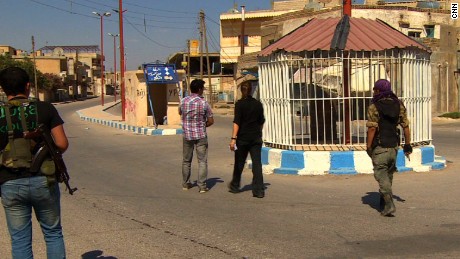As of December 2015, up to 31,000 individuals have flocked to ISIS-controlled territory with the intention to live in, fight for, and die for the self-proclaimed caliphate. While governments grapple to stem the flow of fighters to the war-torn region, the lies propagated by ISIS and its sympathizers continue to draw new recruits. Below is a breakdown of ‘fictions’ that the terror group proclaim to be true, followed by a dose of the grisly, eye-opening facts.
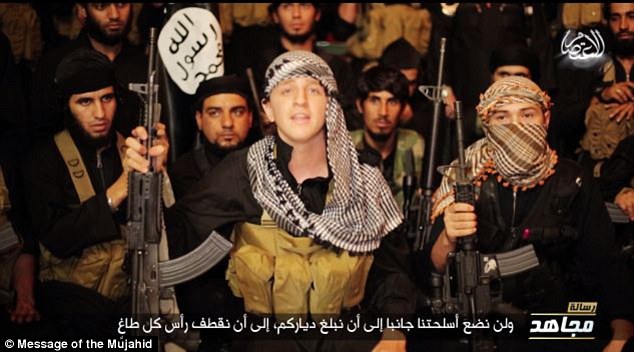
Fiction:
ISIS is the opportunity of a lifetime: to join a caliphate and in so doing, to fulfill your religious duties and absolve yourself of past misdeeds.
Fact:
Islamic scholars from around the world have denounced the religious authenticity of ISIS. These Muslim scholars and theologians have reached a consensus that ISIS is illegitimate, and condemn the group’s abuse of the Islamic theology of jihad to serve their thirst for violence. According to these scholars, this violence is not religiously sanctioned, nor is the global obligation of hijra, immigration, applicable. ISIS’s violent attacks do not only target “disbelievers.” Instead, the vast majority of ISIS’s victims are other Muslims.
Fiction:
ISIS-fighters celebrate and embrace new recruits.
Fact:
Local ISIS militants treat new foreign fighters as amateurs, or worse, spies. Most of the newcomers are given undesirable tasks, such as removing dead bodies from the streets. In a December 2014 letter, one French foreign fighter wrote to his family, “I also help clean weapons and transport dead bodies from the front. Winter’s arrived here. It’s begun to get really hard.” ISIS fighters are often wary of newcomers’ commitment to the cause, and may test the newcomers’ knowledge of Islam. A Tunisian who fought with ISIS recalled having a knife held to his neck by fellow fighters, who demanded that he prove himself by reciting a particular Quranic verse on Islamic warfare. As of December 2015, an average of 20-30 percent of Western foreign fighters have returned home. These fighters leave due to disillusionment with the terror group and weariness of the violence.
"I also help clean weapons and transport dead bodies from the front. Winter's arrived here.
It's begun to get really hard." French fighter to his family
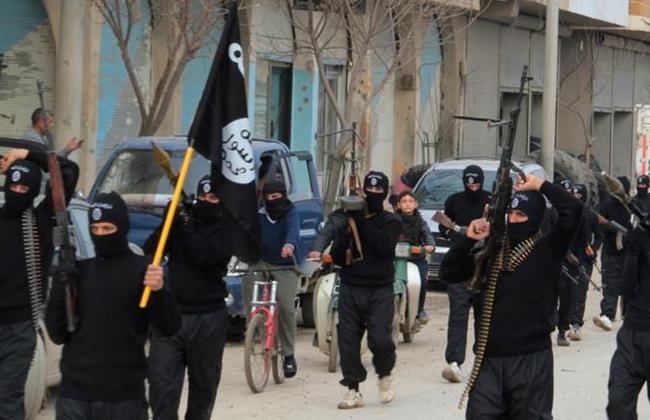
Fiction:
Girls and women who join ISIS will marry their perfect ISIS ‘prince charming.’
Fact:
Women arriving in ISIS territory are quickly married off to ISIS fighters. They hardly know the man they will marry as the arrangement is usually made within two weeks of the woman’s arrival. According to a February 2015 ISIS manifesto, women can marry at the age of nine and should consider motherhood the purpose of their existence. While married, women and girls who join ISIS are treated as little more than homemakers. Much of the day is spent cleaning, cooking, and caring for children, and women can only leave the house if accompanied by a mahram, or male chaperone. When out of the house, women are required to don the full niqab, complete with a face veil and gloves. Men are flogged in public by ISIS members if their wives or the women they are accompanying are not covered appropriately.According to an ex-ISIS member, ISIS fighters “are very brutal with women, even the ones they marry. There were cases where the wife had to be taken to the emergency ward because of the violence, the sexual violence.” Even girls as young as nine are reportedly not safe from the group’s practice of sexual abuse.
ISIS fighters "are very brutal with women, even the ones they marry. There were cases where the wife had to be taken to the emergency ward because of the violence, the sexual violence."
ex-ISIS fighter
Fiction:
Unmarried women live comfortably in a “sister’s makar” (headquarters), where they are provided food, water, heat, and doctors’ visits.
Fact:
Women who are not yet married are called to perform "jihad al-niqah", or "sex jihad", to help ISIS fighters fullfill their wartime duties. Girls as young as 14 are called to partake in the act.
Fact:
Women are forced to marry ISIS fighters immediately, independent of the woman’s wishes. Women who are not yet married are called to perform “jihad al-niqah,” or “sex jihad,” to help ISIS fighters fulfill their wartime duties. Self-described sheikhs allow short marriages, or “pleasure marriages,” which enable men to have sexual relations with numerous partners. The sheikhs see jihad al-niqah as a legitimate form of holy war, and girls as young as 14 are called to partake in the act.
Fiction:
For Muslims, life under ISIS rule is idyllic. Muslims are not even required to pay taxes.
Fact:
In Kirkuk, Iraq, ISIS takes up to 50 percent of government employees' salaries. in short, local citizens and businesses are suffering as a result of ISIS's misrule and extortion.
Fact:
Not only does ISIS make Muslims pay taxes, but those who refuse to pay are threatened with abduction and murder. In November 2014, ISIS began collecting monthly taxes from all students attending schools and colleges, which had been state funded since 1974. In Mosul, Iraq, ISIS has imposed taxes on the local people, businesses, children’s school fees, fuel, and incoming trucks and cars. According to a civilian living under ISIS in Mosul, the terror group takes a quarter of everyone’s salary to “rebuild” the city. In Kirkuk, Iraq, ISIS takes up to 50 percent of government employees’ salaries. In short, local citizens and businesses are suffering as a result of ISIS’s misrule and extortion.
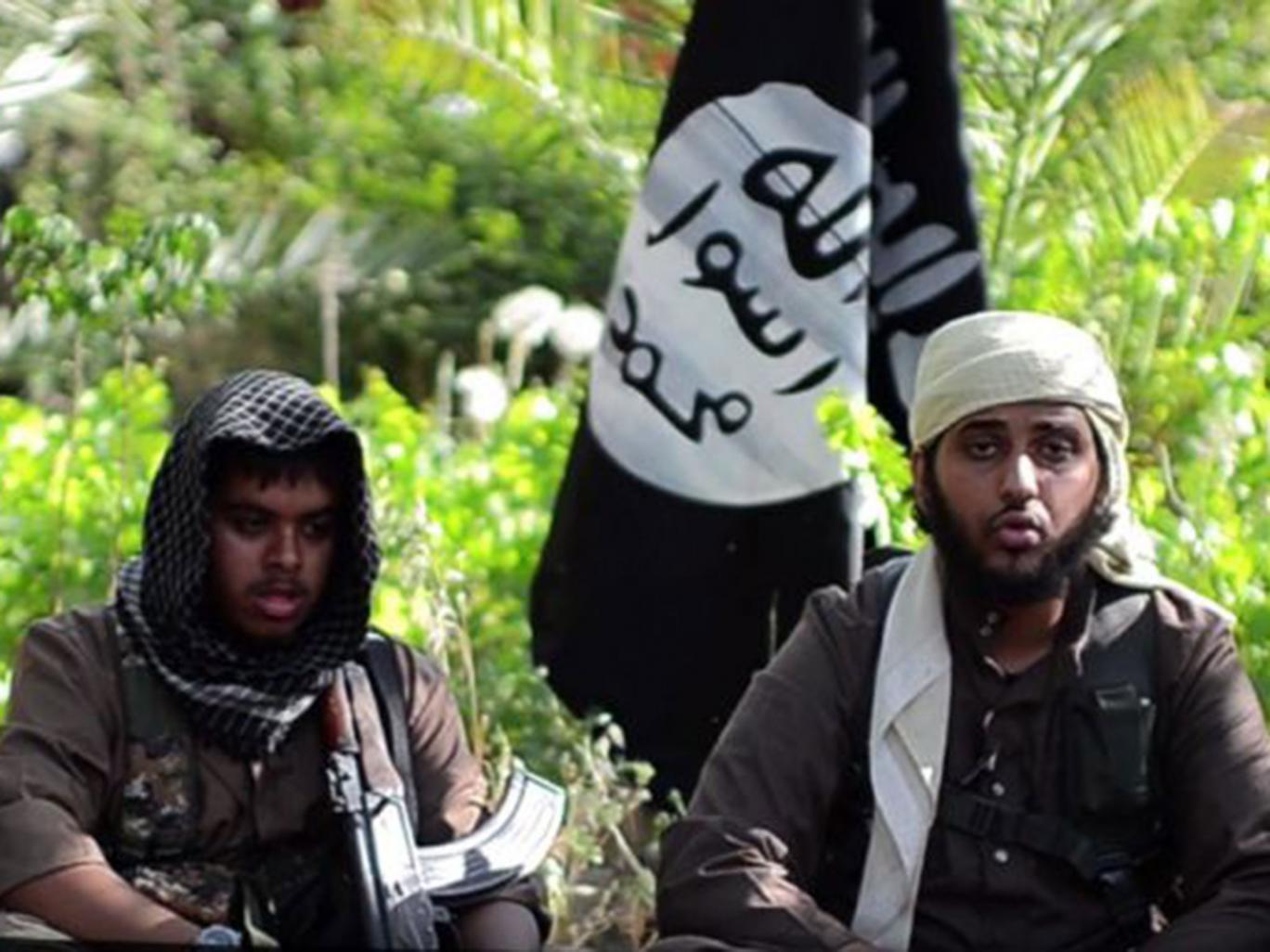
Fiction:
Food is plentiful in the caliphate.
Fact:
ISIS fighters eat little more than "bread and cheese or oil". This is due to the severe food shortages under ISIS-controlled territory in both Iraq and Syria.
Fact:
As an ex-ISIS militant testified, ISIS fighters eat little more than “bread and cheese or oil.” This is due to the severe food shortages under ISIS-controlled territory in both Iraq and Syria. Farmers living under ISIS rule have been unable to plant seeds and harvest crops due to fuel and fertilizer shortages, or simply because they are unable to access their land. ISIS controls a majority of the wheat-producing fields in both Iraq and Syria, which were previously owned by Christians, Kurds, or Yazidis. Instead of ensuring that food is grown and delivered to the people, ISIS has usurped wheat fields from religious minorities and left the farms barren.
Fiction:
Streets in ISIS-controlled territory promise bustling marketplaces and vibrant storefronts, imbued with a common sense of Islamic unity.
Fact:
The streets are a terrifying place to be. Even in major cities, storefronts are generally shut down and headless bodies line the streets. In March 2015, ISIS militants hung bodies of Iraqi soldiers from the entrance of the city of Hawija. As one ex-fighter recalls, “The worst thing I saw was a man getting his head hacked off in front of me.”
"The worst thing I saw was a man getting his head hacked off in front of me."
ex-ISIS fighter
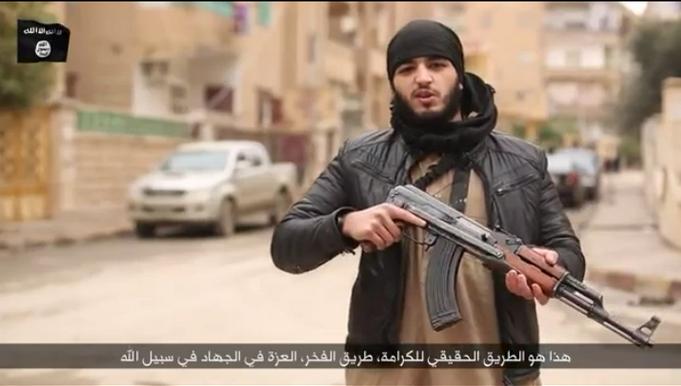

Fiction:
ISIS recruits in Syria will support the Ummah by fighting against Bashar al-Assad’s regime.
Fact:
ISIS militants often fight other rebel groups, resembling what an ex-fighter described as “gang warfare.” The infighting has become so extreme that another ex-ISIS militant complained, “The struggle became one against infidels, rather than Assad.” Eventually he decided to quite ISIS, reasoning, “I am 28; is this the only future I’m able to imagine? Tunnel bombings or car bombs? And I realized that no matter how it ends, in Syria, we all have lost.” In the words of one ex-ISIS militant, “It’s not a revolution or jihad...It’s a slaughter.” Most of ISIS’s enemies are other Sunni rebel groups. The infighting between ISIS and the Free Syrian Army, the Nusra Front, and Ahrar al-Sham, for example, has led to what a number of defected fighters refer to as fitna, or division of the Ummah. Many fighters have defected after realizing that most of ISIS’s victims are Sunni Muslims. What’s more, ISIS has failed to topple the Assad regime.
"It's not a revolution or jihad...It's a slaugther."
ex-ISIS fighter
Fiction:
Everything is paid for in the Islamic State. The caliphate takes care of all your necessities.
Fact:
The caliphate will not take care of your necessities because it cannot afford to take care of itself. The prices of basic items continually skyrocket. For example, the price of a small tank of propane cooking gas can cost as much as $150 in ISIS territory. A family from Mosul was forced to seek help in a refugee camp after their 2-year-old daughter developed cancer and ISIS could not provide the necessary medical supplies. According to longtime Raqqa resident Abu Ibrahim RaqqAwi, the streets are buried in garbage and sewage, and most public institutions have stopped functioning. One Raqqa resident declared, “electricity comes almost never so everyone uses a generator, water is scarce when there is no power for pumps, medical care is worsening, most schools are shut, and rubbish lies on the street.” A British returnee from ISIS-territory admitted, “Life is so hard there. There’s no hot water, no electricity for hours on end, none of the comforts we are used to in Britain.”
"Life is so hard there. There's no hot water, no electricity for hours on end, none of the comforts we are used to in Britain."
a British returnee from ISIS-terriroty
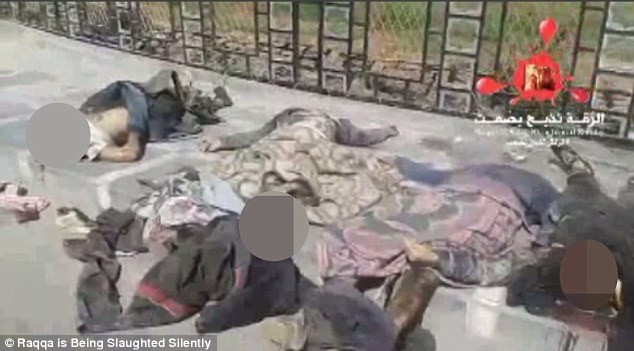
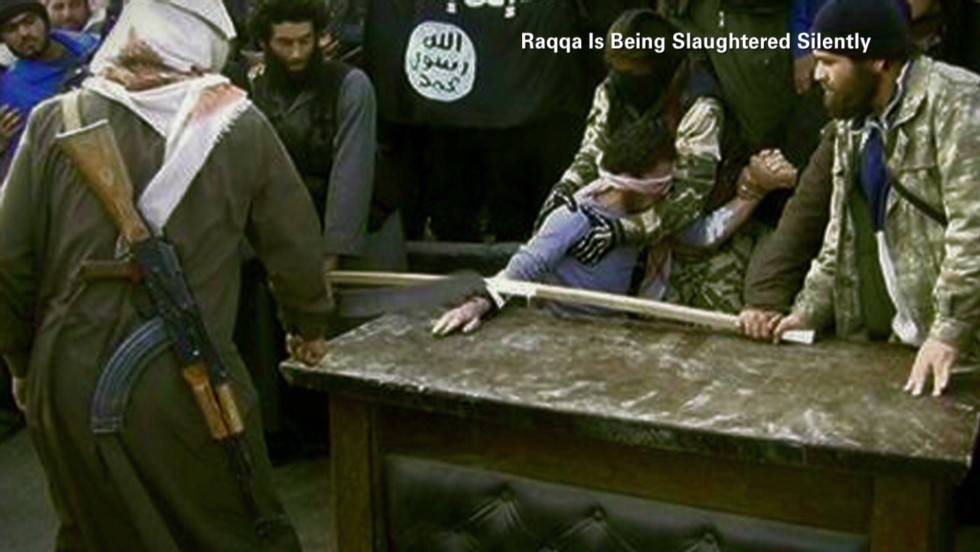
Fiction:
ISIS members are courageous, honorable mujahideen. In addition to protecting their brothers, they remain unphased and calm in the face of Western airstrikes.
Fact:
A former fighter remembers how an ISIS militant lined up children by height and beheaded them one-by-one while making they parents watch. In other cases, children are forced to partake in the fighting, even executing individuals by shooting or beheading.
Fact:
Despite claims that ISIS brothers care for each other, support from fellow fighters is deficient. One ISIS fighter says that he was abandoned by his brothers on the battlefield after receiving a bullet wound. According to the fighter, “Only after I begged them, I was taken to a hospital.” In addition, ISIS has killed children. A former fighter remembers how an ISIS militant lined up children by height and beheaded them one-by-one while making their parents watch. In other cases, children are forced to partake in the fighting, even executing individuals by shooting or beheading.
Fighting for ISIS is dangerous, and fighters are not immune to the terror. One fighter’s fear was apparent: “I swear by God, their planes [delivered] airstrikes all day and night. They targeted everything. They even attacked motorcycles; they have not left a building standing,” he said of coalition airstrikes on Kobani. The residents in ISIS territory are also horrified by constant airstrikes and attacks. According to one former ISIS resident, “There were bombs coming down on the street where I lived every night. The house would shake. I didn't know if I was going to live or die.” As of October 2015, U.S.-led airstrikes have killed at least 20,000 ISIS militants. That’s more than 1,500 ISIS fighters per month on average.
Fiction:
ISIS leaders are moral and abide by pure Islamic law.
Fact:
According to a defected fighter, top ISIS leaders are "mercenaries" who seek to cut business deals on oil and other commodities to raise funds. Other leaders raise funds through extortion, human trafficking, and looting.
Fact:
ISIS leaders are corrupt, and mostly care about making money. According to a defected fighter, top ISIS leaders are “mercenaries” who seek to cut business deals on oil and other commodities to raise funds. Other leaders raise funds through extortion, human trafficking, and looting. Corruption is also rampant among lower-level leaders, who favor some fighters over others with no theological justification. ISIS is not a perfect Islamic society, but a nefarious and un-Islamic cult.
Furthermore, many fighters take a drug called fenethylline, or captagon, which gives users a euphoric intensity. While drugs are haram (forbidden) in Islam, ISIS militants are reported to use captagon to embark on multi-day killing sprees.
Fiction:
There is no racism in the Islamic State.
Fact:
Foreign fighters are placed in a hierarchy based on their race. Local Arab fighters are paid the most, while fighters from Africa and South Asia are paid less and given inferior roles. There have also been accounts of South Asians being tricked into suicide attacks. Western recruits are reportedly assigned housekeeping chores, while Indians are left to scrub toilets.
Blending of races and nationalities is not a reality in the Islamic State. Foreign recruits tend to hang around others of the same nationality. According to a British fighter, “associating with Arabs can be quite annoying and stressful.”
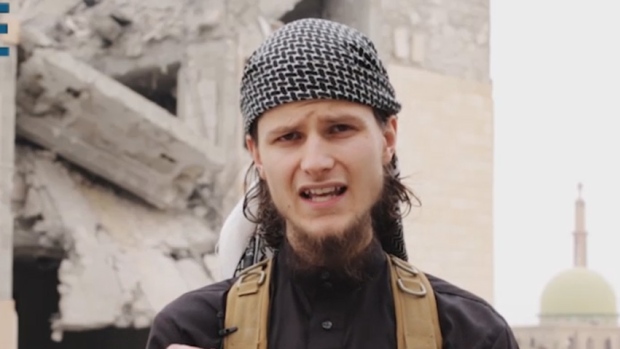
Fiction:
Becoming a suicide bomber is not forced upon individuals. Fighters can choose whether or not they want to carry out a martyrdom operation.
Fact:
Once an individual joins ISIS, he/she has little control over their fate. ISIS recruits are faced with a choice between risking death through fighting, and accepting death in a suicide mission. According to one ex-ISIS fighter, “They took all my documents and asked me if I want to be a fighter or a suicide bomber.” A 14-year-old boy was faced with that same ‘choice,’ and for many, fighting alongside ISIS is a death warrant in and of itself. According to one terrified ISIS fighter, “They want to send me to the front, but I don’t know how to fight.”
"They took all my documents and asked me if I want to be a fighter or a suicide bomber."
ex-ISIS fighter
Fiction:
Those who do not like life under ISIS can easily leave.
Fact:
Of those who join ISIS, few manage to escape. Defectors caught trying to flee ISIS territory face death. According to the Syrian Observatory for Human Rights, ISIS killed 120 of its own members between August 2014 and February 2015, most of whom were foreign fighters hoping to return home. For those who do manage to escape, friends left behind are often punished in their places. One girl who managed to escape spoke of friends in ISIS territory who were raped as punishment for her actions. Another ex-fighter also worries about those he left behind. “My family, my cousins, my siblings are all still there,” he said. “I fear for them. If they can't reach me, they will reach my family.” Furthermore, foreign fighters’ home countries are not likely to accept them back. Britain, France, Germany, and Belgium have a policy of detaining individuals suspected of being involved in a militant group abroad. Austria has also recently enacted legislation allowing it to detain someone suspected of supporting ISIS or other groups in Syria. Canada has adopted a policy allowing the government to bar suspected extremists from re-entering the country altogether.
"My family, my cousins, my siblings are all still there," he said. "I fear for them. If they can't reach me, they will reach my family."
ex-ISIS fighter
